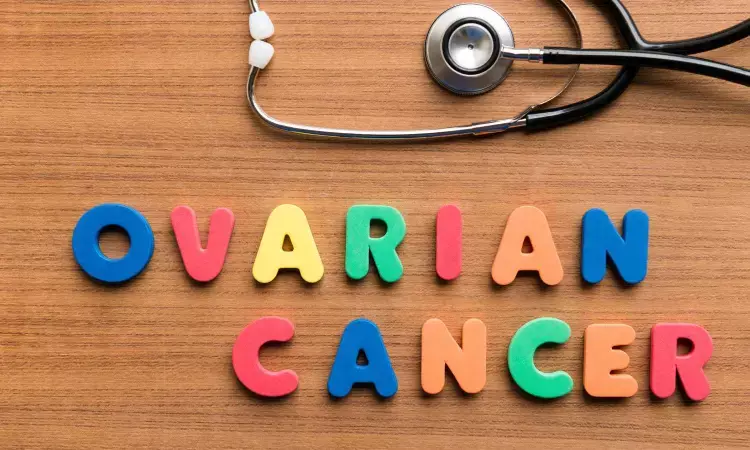- Home
- Medical news & Guidelines
- Anesthesiology
- Cardiology and CTVS
- Critical Care
- Dentistry
- Dermatology
- Diabetes and Endocrinology
- ENT
- Gastroenterology
- Medicine
- Nephrology
- Neurology
- Obstretics-Gynaecology
- Oncology
- Ophthalmology
- Orthopaedics
- Pediatrics-Neonatology
- Psychiatry
- Pulmonology
- Radiology
- Surgery
- Urology
- Laboratory Medicine
- Diet
- Nursing
- Paramedical
- Physiotherapy
- Health news
- Fact Check
- Bone Health Fact Check
- Brain Health Fact Check
- Cancer Related Fact Check
- Child Care Fact Check
- Dental and oral health fact check
- Diabetes and metabolic health fact check
- Diet and Nutrition Fact Check
- Eye and ENT Care Fact Check
- Fitness fact check
- Gut health fact check
- Heart health fact check
- Kidney health fact check
- Medical education fact check
- Men's health fact check
- Respiratory fact check
- Skin and hair care fact check
- Vaccine and Immunization fact check
- Women's health fact check
- AYUSH
- State News
- Andaman and Nicobar Islands
- Andhra Pradesh
- Arunachal Pradesh
- Assam
- Bihar
- Chandigarh
- Chattisgarh
- Dadra and Nagar Haveli
- Daman and Diu
- Delhi
- Goa
- Gujarat
- Haryana
- Himachal Pradesh
- Jammu & Kashmir
- Jharkhand
- Karnataka
- Kerala
- Ladakh
- Lakshadweep
- Madhya Pradesh
- Maharashtra
- Manipur
- Meghalaya
- Mizoram
- Nagaland
- Odisha
- Puducherry
- Punjab
- Rajasthan
- Sikkim
- Tamil Nadu
- Telangana
- Tripura
- Uttar Pradesh
- Uttrakhand
- West Bengal
- Medical Education
- Industry
Study finds Impact of BRCA Variant Awareness on Ovarian Cancer Outcomes

Recently published study delves into the association between prior knowledge of BRCA1/BRCA2 pathogenic variants (BRCA-PVs) carrier status and outcomes in women diagnosed with ovarian cancer (OC). Carriers of these variants are at a heightened risk of OC. Risk-reducing bilateral-salpingo-oophorectomy (RR-BSO) is recommended for carriers at specific ages but is often delayed due to late genetic diagnosis, with only about a third of patients undergoing RR-BSO at the suggested age. The study aims to examine how being aware of one's BRCA-PV carrier status before an OC diagnosis impacts outcomes.
Research Methodology
The research involved a retrospective cohort analysis of medical records at Shaare Zedek Medical Center and Carmel Medical Center from 2000 to 2023. Women in the study received guideline-based surveillance and prevention recommendations, including RR-BSO. Various statistical analyses such as t-tests, χ2 tests, logistic regression, Kaplan-Meier analysis, and Cox regression were conducted to evaluate the data. The analysis adhered to the STROBE reporting guideline.
Major Findings
The study identified 132 women with germline BRCA1/BRCA2 PVs, among which 29 had prior knowledge of their carrier status. Those aware of their BRCA-PV status before the OC diagnosis exhibited improved overall survival outcomes compared to those who were unaware. The results were statistically significant, suggesting a potential link between pre-diagnosis knowledge of BRCA-PV carrier status and better OC outcomes.
Implications and Future Directions
This research highlights the importance of early awareness of BRCA-PV carrier status, as it may influence treatment decisions and potentially lead to improved survival rates for women diagnosed with OC. Despite the limitations of the study, such as its retrospective nature and sample size, the findings underscore the significance of genetic testing and counseling for individuals at risk of hereditary cancers like OC. Further research could delve deeper into the impact of pre-diagnosis genetic knowledge on treatment adherence and long-term outcomes in OC patients with BRCA-PVs.
Key Points
- The study explored the relationship between prior knowledge of BRCA1/BRCA2 pathogenic variants (BRCA-PVs) carrier status and outcomes in women diagnosed with ovarian cancer (OC), emphasizing that carriers of these variants are at a heightened risk of OC.
- Risk-reducing bilateral-salpingo-oophorectomy (RR-BSO) is recommended for carriers at specific ages, but delay in genetic diagnosis often occurs, with only about a third of patients undergoing RR-BSO at the recommended age.
- Through a retrospective cohort analysis of medical records, the study found that women aware of their BRCA-PV carrier status before OC diagnosis showed improved overall survival outcomes compared to those who were unaware, with statistically significant results suggesting a potential link between pre-diagnosis knowledge and better OC outcomes.
- The research underlines the importance of early awareness of BRCA-PV carrier status, indicating that it could influence treatment decisions and potentially lead to enhanced survival rates for women with OC. Despite study limitations, the findings stress the importance of genetic testing and counseling for individuals at risk of hereditary cancers like OC.
- The study identified 132 women with germline BRCA1/BRCA2 PVs, with 29 having prior knowledge of their carrier status. Various statistical analyses, including t-tests, χ2 tests, logistic regression, Kaplan-Meier analysis, and Cox regression, were used to evaluate the data, adhering to the STROBE reporting guideline.
- The study suggests that further research could explore the impact of pre-diagnosis genetic knowledge on treatment adherence and long-term outcomes in OC patients with BRCA-PVs, indicating the need for continued investigation into the benefits of pre-diagnosis awareness in improving OC prognosis.
Reference –
S. Armon et al. (2025). Presymptomatic Awareness Of BRCA1/BRCA2 Status And Outcomes In Women With Ovarian Cancer. *JAMA Network Open*, 8. https://doi.org/10.1001/jamanetworkopen.2025.1435.
Dr Kamal Kant Kohli-MBBS, DTCD- a chest specialist with more than 30 years of practice and a flair for writing clinical articles, Dr Kamal Kant Kohli joined Medical Dialogues as a Chief Editor of Medical News. Besides writing articles, as an editor, he proofreads and verifies all the medical content published on Medical Dialogues including those coming from journals, studies,medical conferences,guidelines etc. Email: drkohli@medicaldialogues.in. Contact no. 011-43720751


